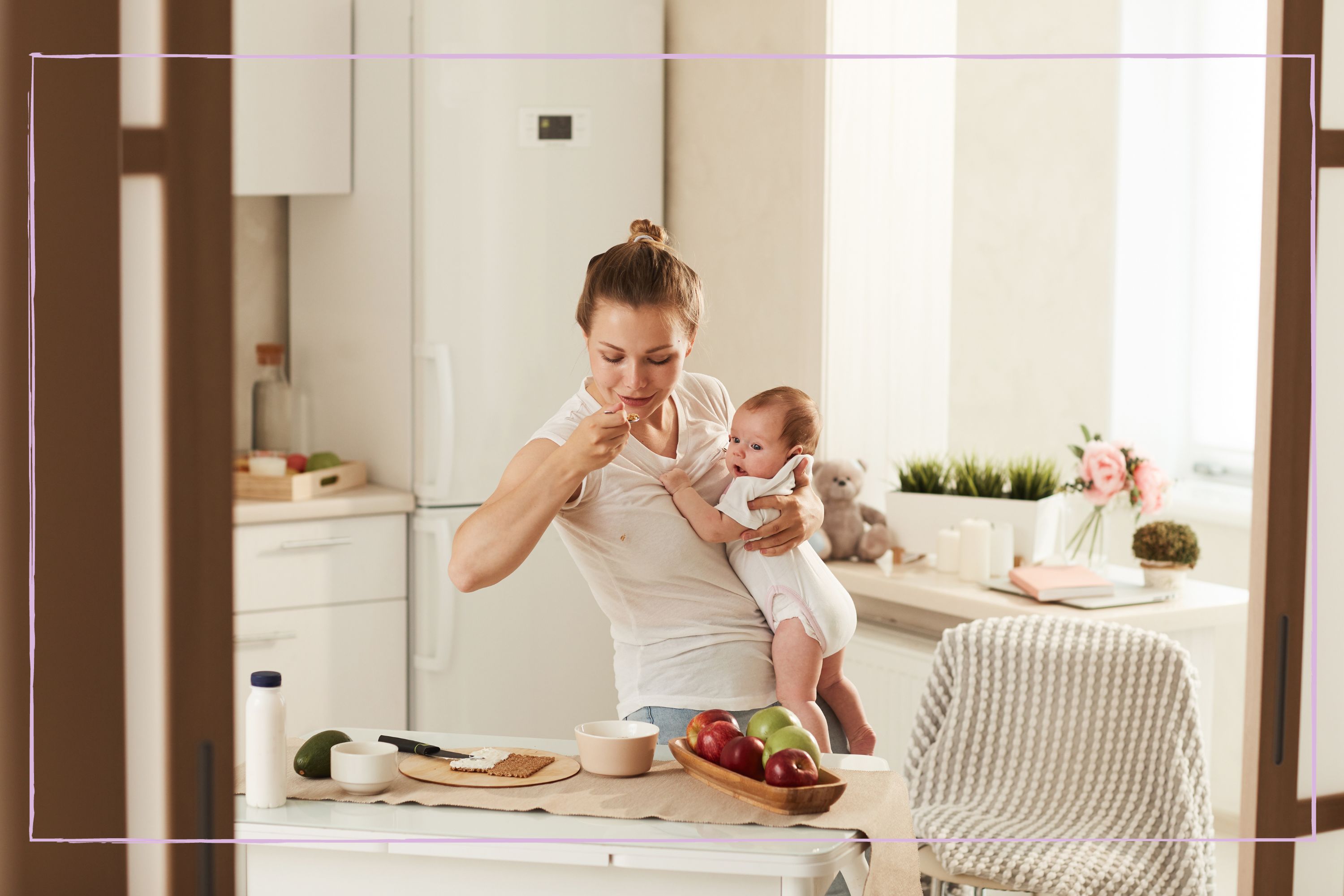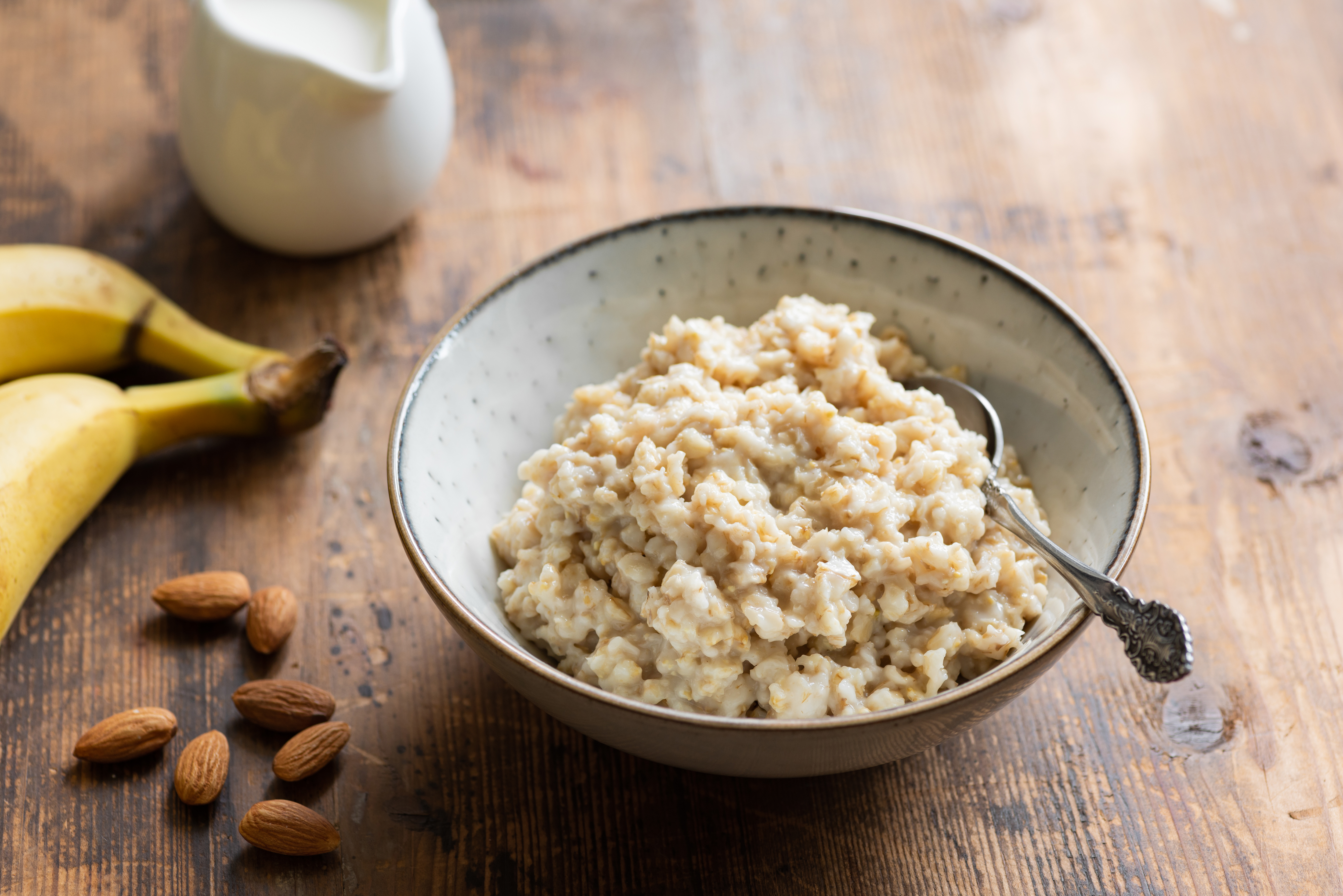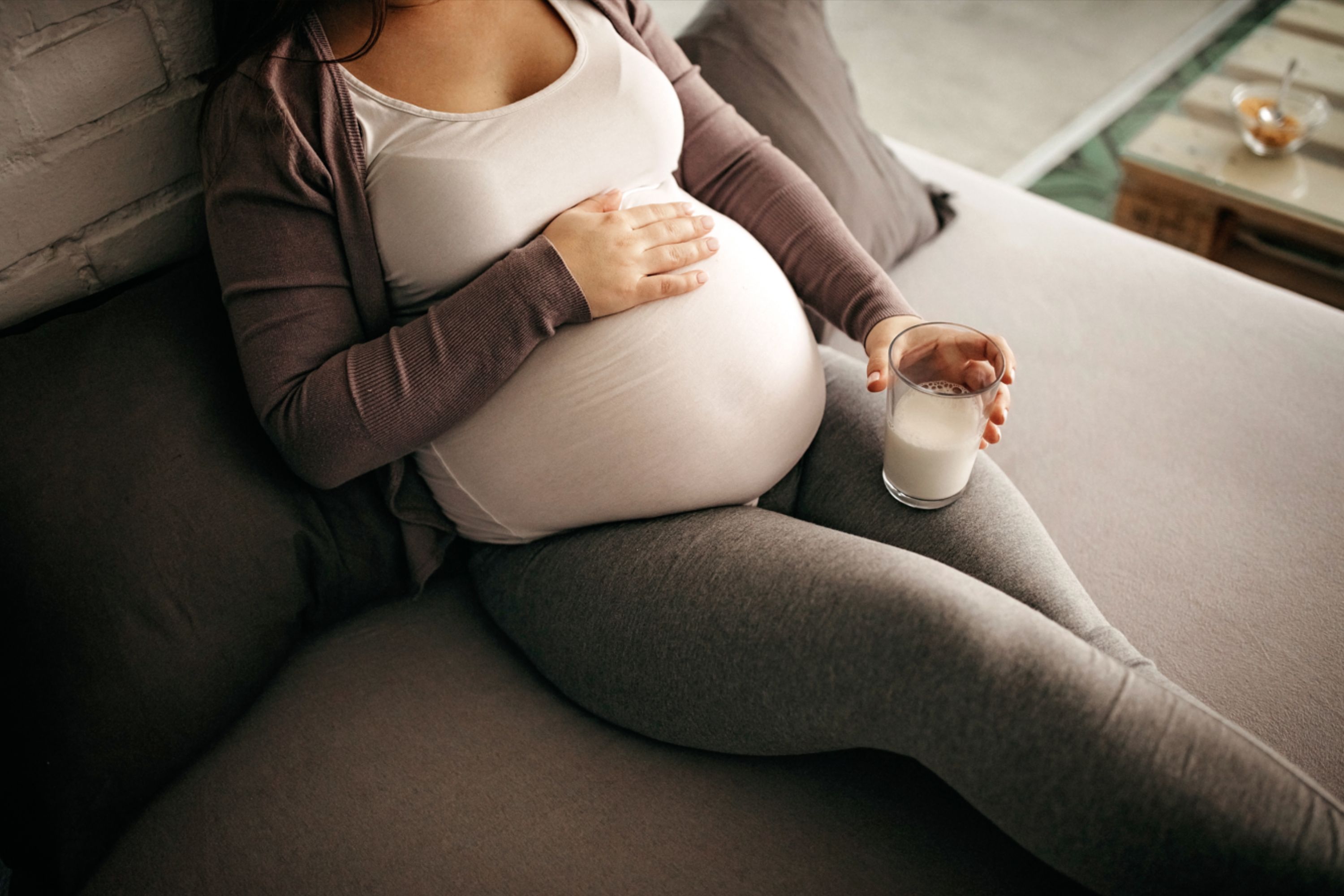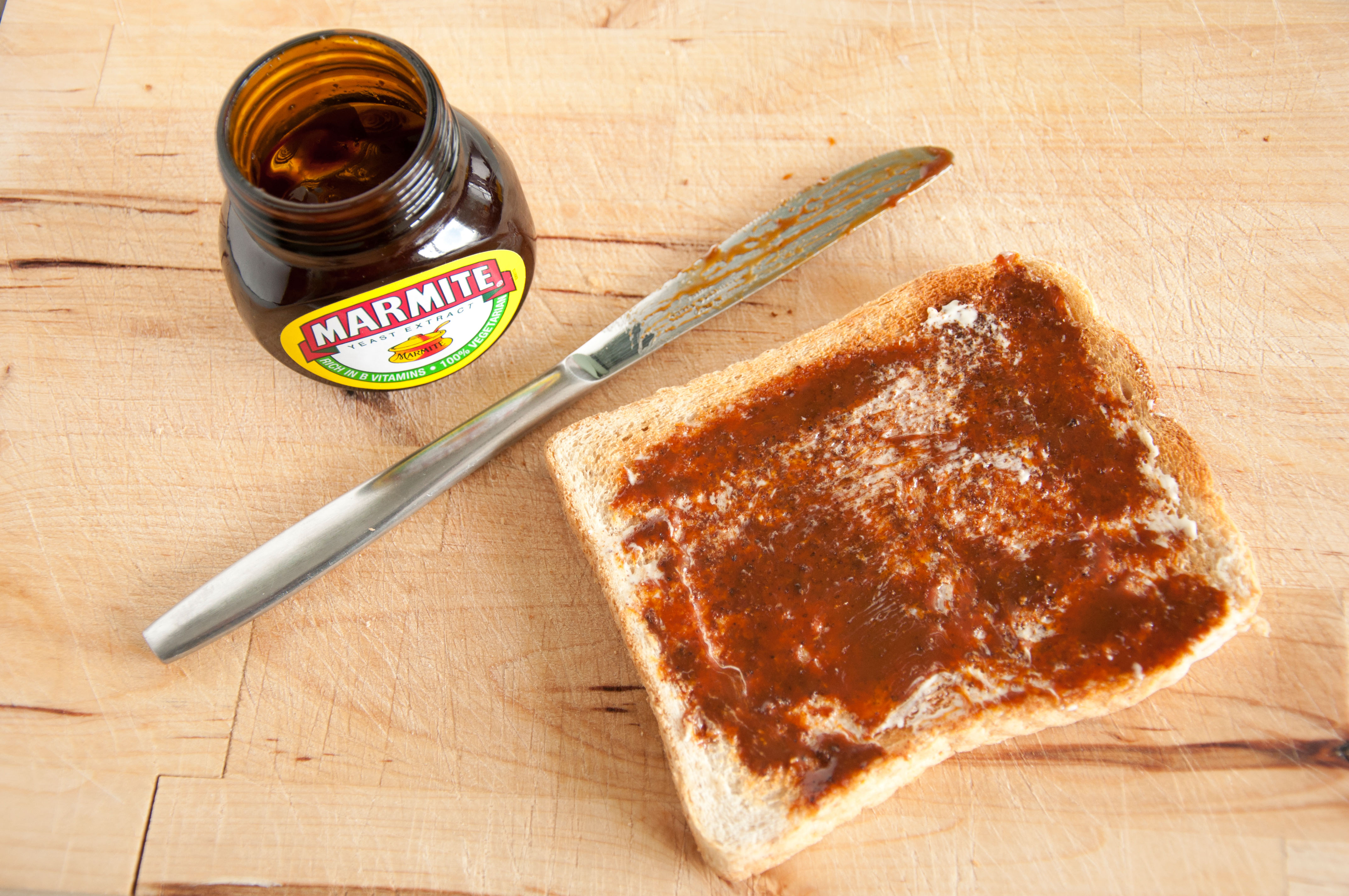20 foods that give energy when you haven't slept because of your newborn - and they'll help with a boost in pregnancy too
The best foods that give energy to new parents – to power you through the day after a sleepless night with baby


Ellie Hutchings
What can you do to boost your energy levels as a new or expectant parent? Nutrition can help, so we've rounded up a list of the best foods that give you energy – to power you through another day of pre or postnatal exhaustion.
No need to wonder why you might be tired all the time as a new parent - because you're likely grappling with how to get your baby to sleep, and, even when things are quiet, there's laundry and tidying to do, and showers to take (yes, we remember, what showers?). And even if your baby hasn't arrived yet, hormonal changes in pregnancy mean it's common to feel exhausted.
"Being a new parent is a stressful time, and so nutrition is required on more than one level – for energy and stress resilience, for both mums and dads. Besides the need to account for the extra calories and nutrients for mothers breastfeeding their new additions, lack of sleep is also a nutrient thief and a cause of unhealthy food choices," says Jane Hutton, nutritionist, and chef at The Functional Foodie.
Fortunately, our roundup has a range of delicious, easy food options - many of which you can grab on the go (because, also, what cooking?).
Which foods give you the most energy?
Nutritionist Jane says that, for new mums in particular, it’s crucial not to go low fat, and to get plenty of amino acids (protein) and essential fats (dairy, seafood, nuts and seeds).
"The main rules when eating for energy are to eat regularly, and prioritise protein and healthy fat rather than just chucking bread into the toaster! Carbs are important, but a carb-heavy diet, or a processed one, will throw off energy levels, and lead to a lack of nutrients, creating fatigue and getting into a cycle of blood sugar peaks and crashes," she says.
"Having the right staples in your store cupboard, fridge and freezer is the first step, along with making meals and snacks in batches to last a few days for accessible and satisfying fuel that balances blood sugar, keeps the fires burning for hours, and provides all the calories and nutrients you need." It's also worth remembering that not drinking enough water and eating at the wrong time can affect your energy levels.
Parenting advice, hot topics, best buys and family finance tips delivered straight to your inbox.

Laughing mum lying on her back balancing her baby on her legs
20 best foods that give energy
1. Lean red meat (and other iron sources)
If there's one nutrient that women tend to fall short of, it's iron, and we tend to be short on this important mineral during pregnancy as well as for six to 12 weeks after giving birth. Dietician Helen Bond, a spokesperson for the British Dietetic Association, says that iron is essential for preventing the energy-zapping condition anaemia. Of course, you might not have time to whip up a steak dinner with a side of wilted spinach (though maybe your partner can attempt that one evening – because you both deserve a treat, we feel), but grabbing nuts and dried fruit as snacks on the go will help meet your iron needs, as will adding seeds to your cereal or whipping up some quickly boiled or scrambled eggs.
To boost your energy...
"Don’t forget that iron also needs vitamin C to help its absorption, which means eating plenty of fresh fruits and vegetables in your meals, having a salad with your steak, or fruit juice to accompany your fortified breakfast cereal," says Helen.
2. Avocados
Known as a superfood for good reason, avocados are one of the most nutritious and versatile foods you can eat. Nutritionist Fiona Hunter says that vitamin B6 is a key energy-boosting B group of vitamins involved in more than 100 different enzyme reactions and – most importantly – the metabolism of protein, carbs and fats. She adds that B6 is also needed for a sharp brain and healthy immune system as it helps promote the formation of white blood cells and haemoglobin, the oxygen-carrying component of red blood cells - handy at a time when you're most likely not feeling at your sharpest. Plus, B6 is believed to help reduce nausea associated with morning sickness during the first trimester of pregnancy.
To boost your energy...
Add half an avocado to a fruit or veg smoothie. Slice them into a speedy salad or mash as guacamole – and, if you haven't got time to get the blender out and add other things, mash it straight onto a bit of toast (ideally wholegrain, rye or sourdough). Top with a poached egg if you can, for a breakfast/lunch/anytime meal of champions.
3. Potatoes
Registered nutritionist Rhiannon Lambert believes that the humble potato is often neglected in our diets, even though it's a great energy source: "They have a high fibre content which slows down the release of glucose in the blood, leaving you energised for longer," she explains. For optimum benefits, eat potatoes with the skin on, as it contains most of the fibre. Sweet potato is a better option still, containing far more goodness, including beta carotene, vitamins A and C and manganese.
To boost your energy...
The least labour-intensive way to cook a potato when you're feeling a tad zombified is to throw them in the oven for jackets. Pop the baby down for a swift moment to pre-cook for five minutes in the microwave, before crisping up in the oven and topping it with a dollop of hummus or some cheese or baked beans, or get out that chilli from the freezer. During baby's nap time, you could make a speedy vegetable tortilla and save the leftovers to eat cold the following day.
4. Bananas
One of the best-known foods for a speedy energy boost is the humble banana. They're easy to eat quickly - making them perfect for when you've got a baby to attend to - so get stocked up for those final weeks of pregnancy and early days of parenthood, because they will become your secret weapon.
"Bananas contain complex carbohydrates which are long chains of sugar molecules, meaning they take longer to break down so they sustain energy levels for longer. They are also filling and a source of potassium," says Rhiannon.
To boost your energy...
You might think making pancakes is far beyond your wildest culinary dreams just now, but not with these two-ingredient banana pancakes for brekkie (or any other meal, really). Bananas are also a great smoothie ingredient, or add slices of this energy-boosting fruit to your peanut butter on toast.
5. Oats
There are many health benefits of oats and they're an easy, quick breakfast to keep you going – especially when your baby woke you up at an unspeakable hour and lunchtime feels like it will never show up.
"Oats are fantastic for keeping your energy levels up for longer. They're a brilliant breakfast choice, as they'll give you that boost of energy you need while keeping you fuller for longer," says Rhiannon. "They have a low glycaemic index (a measure of how quickly a food increases blood glucose levels) meaning you get slower energy release over a longer period of time."
To boost your energy...
Eat plain rolled oats or the healthiest porridge brands – ideally without added sugar – or add oats to your morning pancakes or yogurt. And don't just save them for breakfast – oats can be used to coat fish or chicken goujons once you get a moment to make something that resembles a proper, home-cooked meal – just like fellow parent Joe Wicks does with his oaty katsu chicken dippers recipe.

6. Kale
Derided by some, kale has had a moment in recent years – and it's incredibly nutritious and flavourful if you know what to do with it. "Kale is a positive powerhouse of energy due to its high magnesium content, needed to trigger the release of ATP (adenosine triphosphate), which works like a rechargeable battery to store and release the energy that powers cells," explains Fiona. "Magnesium helps muscles contract and relax, aids nerve function, keeps the heartbeat strong and steady, and works with calcium to build strong bones." Kale also contains high quantities of folate, a nutrient vital to the development of your baby's nervous system during pregnancy.
To boost your energy...
That's all very well when you have time to give your bag of kale some TLC, but we don't think knocking up a batch of kale pesto or homemade soups will be happening at this stage. Instead, try to add it to morning juice or make kale chips. so you've got a supply of energy-giving snacks – all you need is some olive oil and sea salt (and alternatively, you could always buy some…).
7. Beetroot
A. Vogel nutritionist Emma Thornton explains why this often-overlooked vegetable should be a regular on your lunch plate: "The nitrates in this root veg could boost your endurance. It may also have an impact on brain power." And, while this may not be a stage of life where you're doing a long shift at work, you're doing a very long shift at parenting (in fact, when is your day off? Oh, that's right, never), so that beetroot boost is sorely needed.
To boost your energy...
This is a time to buy your beetroot ready-prepared from the supermarket if ever there was one. Add it to an easy salad, roast it in the oven with rosemary, or chuck some in with your morning smoothie. It's excellent with crumbly, salty feta too.
8. Oily fish
You only need to eat two or more portions of oily fish a week for it to make a difference to your health. "Mackerel, salmon, tuna, and trout are examples of oily fish that contain omega-3 fatty acids which can be used by the body to produce energy," says Rhiannon. Omega-3 is also important for your baby's development during pregnancy, but you shouldn't eat any more than two portions of oily fish per week if you are pregnant, because they can have pollutants such as dioxins and polychlorinated biphenyls in them. Secondly, it's a good source of vitamin B12, which converts fats and protein into energy (low levels of B12 is linked to low energy levels). Because B12 isn't found in plant foods, if you're vegan or vegetarian you could benefit from a B12 supplement.
To boost your energy...
Fillets of fish are easy to cook for a simple dinner at a hectic time. Pan-fry a tuna steak or wrap fillets of salmon or trout in foil (chuck in a few herbs, if you're feeling flamboyant) and serve with a baked potato and some basic steamed veggies. Stock up on tinned fish too – a can of tuna is always your simple cooking friend – stir it in with some pasta, and add sweetcorn, olives, tomatoes, a bit of onion (whatever you have lying around, basically). There are plenty of recipes for tinned salmon too.
9. Eggs
There are no longer guidelines on how many eggs you can consume a week (remember when we were told we could only eat three?), so fill your boots – they're one of the easiest things to eat when you're time-poor too: "Eggs are an excellent source of vitamin B12, which aids the manufacture of red blood cells and helps the body process folic acid (another B vitamin). Eggs also contain choline, a nutrient used to make the brain chemical acetylcholine, which helps alertness," says Fiona. But remember, if you're pregnant you will need to look for British Lion hen eggs (they have a lion stamp on them). Any other eggs are only safe to eat if both the egg and yolk are well cooked, because they may have salmonella in them.
To boost your energy...
Hard-boiled eggs are always your friend, or make something that will last for future meals. "A breakfasts of eggs, such as a baking dish of frittata that can be used in chunks for breakfasts or light lunches (highly portable too), are perfect for keeping hunger pangs at bay and maintaining energy levels all morning," says Jane.
10. Milk
"Milk is rich in a nutrient that many of us are not familiar with called iodine," says Helen. "Iodine is needed to make thyroxine, a hormone that controls our metabolism. A sluggish metabolism can make us feel tired."
Helen continues: "Unfortunately, many of us aren’t getting enough iodine – in fact, 12 percent of women and eight percent of men aged 19-64 have really low intakes. Therefore, avoid a deficiency by including iodine-rich foods in your diet, such as milk and dairy, fish, shellfish, some iodine-fortified plant-based milks, eggs, meat, and poultry."
Low-fat dairy products such as milk, cheese and yogurt are also an important part of the diet while breastfeeding, because they contain calcium and are a source of protein. But remember that if you're pregnant you can only consume pasteurised milk (and that includes yoghurt, cream, ice cream and soft cheeses), because of the risk of Listeria bacteria.
To boost your energy...
An excellent reason to order a full-fat latte to see you through another groggy morning after the night before (although it'll have to be decaf if you're pregnant), or make yourself a milkshake with fresh berries and banana.

11. Wholegrains
Carbs have become the enemy of late, but they are a valuable energy source. Helen explains: "Carbs are an important fuel for your brain and body, but choosing the right types is important. Choose whole-grains with higher fibre content and a lower glycaemic index, such as wholegrain muesli, wholemeal bread, brown rice, pasta, and ancient grains like quinoa and buckwheat. These release energy slowly and keep your gut microbes healthy, too." A word of warning, though. Helen advises to "keep an eye on your portions because overeating can make you feel sleepy. Save your carb-loaded meals for the evening."
To boost your energy...
Quinoa is easy to cook (and great for breastfeeding because it's a good source of magnesium that helps your body absorb calcium) and can be used in risotto, salads, and porridge. Jane also recommends easy ready-cooked noodles as a carb source, if cooked as part of a nutritious meal like ramen. "A fantastic suite of ingredients is ready-cooked noodles made with boxes of ramen broth or sachets of miso soup - just about the only packaged ingredients I like to see. A ramen bowl with broth, noodles, slivers of veg, and whatever meat or seafood you fancy, is comfort food of the highest order, and nourishing for the body too!"
12. Nuts
Nuts are your postpartum friend – easy, brilliant snacks that boost energy and can be grabbed on the move. "Nuts contain fatty acids which can enter chemical reactions within the body and be used to produce energy," explains Rhiannon. They are also high in filling protein, meaning you don't have to eat a lot to satisfy your hunger. This makes them perfect if you're short on time thanks to the demands of, well, raising a human, or during pregnancy if you're struggling with nausea or are at the later stages where you tend to get full quickly. "Opt for the unsalted varieties to prevent excessive salt intake," Rhiannon advises.
To boost your energy...
Add nuts to any salad to make it more substantial or be inventive with your snacks: "Seeded toast or crackers with almond butter, melon slices with a handful of nuts or a yogurt, cake based around polenta or ground almonds rather than flour – these are all high protein servings of sweetness," says Jane Hutton.
13. Pulses
Helen recommends pulses as being particularly good for a slow release of energy. "That's all tinned or dried beans, peas and lentils. These are great to add to your diet because they are high in protein and fibre," she says. She suggests vegetarian and vegan-friendly beans, lentils, chickpeas and nuts. "Plus, pulses are one of the few foods to be classed as both a vegetable and a protein, helping you on your way to your 5-a-day, too."
Fiona also explains: "A brilliant source of soluble fibre for slow and steady glucose release, lentils are also rich in those energy stars – B vitamins, iron, and magnesium. They provide both complex carbs (the best sort for sustained energy) and protein, as well as manganese, potassium, zinc and molybdenum – a trace element used for cell energy production."
To boost your energy...
Make yourself a good, old-fashioned plate of beans on (wholegrain) toast or, if you succumb to a takeaway (which is perfectly acceptable under these – or most – circumstances), opt for a rich Indian dahl or a chickpea curry. "Cooked packages of lentils and chickpeas make brilliant bases for main meals, salad bowls, or hot hashes," says Jane Hutton. "Chucking things in frying pans to make gorgeous meals in literally minutes – and that fuel body and soul – are child's play with the right ingredients. I love a lentil, rice and chickpea mix thrown into a frying pan after I’ve fried up onion, leek, and halloumi with some harissa." Also, get some inspiration from puy as an accompaniment to fish or meat.
14. Wholegrain and wholewheat pasta
Knocking up a bowl of pasta is an obvious go-to option when time-poor with a newborn and, while it's tempting to reach for white pasta, the wholewheat options are better for you. "Wholegrain pasta has a lower GI index, which means it's a great source of energy that's released slowly," says Rhiannon. "In addition, wholegrain pasta has more fibre, which is beneficial for your gut." It's a little nuttier and chewier – and takes slightly longer to cook – but you'll notice a difference in your energy levels.
To boost your energy...
Eat with a quick homemade tomato sauce – sweat down a little onion and garlic with a tin of tomatoes or passata and a pinch of sugar; adding some tinned anchovies in the mix is always a winner, too. Make a big batch and freeze it for another day. There's always that trusty jar of pesto, too – it will never disappoint you.
15. Marmite
Love it or loathe it, there are plenty of health benefits to Marmite. And it's an important source of nutrients for new mothers who are vegetarian or vegan. Healthspan's head of nutrition Rob Hobson is a big fan: "It's a brilliant source of vitamin B12, especially for people who don’t eat much (or any) meat or dairy." If you're pregnant, Marmite is rich in that all-important folic acid too. And who (apart from the haters, obviously), doesn't love a reason to eat it on buttery toast?
To boost your energy...
Spread Marmite on wholemeal toast for breakfast or an evening snack, and some people (not all) even love it with smashed avocado, another food that gives energy. If you get the chance to whip up a spag bol (making extra for leftovers), add a couple of teaspoons of Marmite to your ragu sauce for that extra umami flavour.

16. Energy balls
Filled with good-for-you fats and natural unrefined ingredients, as the name suggests these are most excellent snacks to boost energy when you're in the sleep-deprived throes of new-born parenting, or struggling to get adequate rest when you're uncomfortable in your pregnancy.
To boost your energy...
An excellent way to stop yourself from falling straight into the cakes/biscuit/chocolate bar trap is to make time to knock up some homemade energy balls. They're high protein with peanut butter and chia seeds, and easy to take on-the-go. Make a double or triple batch and store them in the freezer. Alternatively, buy some from brands such as Deliciously Ella or the Protein Ball Company.
17. Water
It's not food but it is essential. Helen explains that "even slight dehydration can leave you feeling worn out. Drinking plenty of fluids throughout the day can help keep your mind and body alert." Just one glass of water can make a difference to how tired you feel. If you're breastfeeding, always have a large glass by your side to drink each time you feed your baby – because breastfeeding is dehydrating. You might notice you're feeling more thirsty than usual – this is because of the extra water needed to produce milk.
To boost your energy...
Helen recommends drinking tap, bottled, fizzy, hot and cold water, herbal teas, fruit juice and milk to hydrate. "They all count," she says.
18. Dark chocolate
Yes, dark chocolate is good for you – if you opt for one with more than 70 percent cocoa solids, which has less sugar than milk chocolate. Rob says: "Just a few squares can give you a quick sugar boost to pick you up. In addition, cocoa is a rich source of magnesium, which the body needs to help convert food into energy." In fact, findings from one 2010 study suggest that eating chocolate during pregnancy can actually decrease the risk of preeclampsia and gestational hypertension. Meanwhile, a 2016 study showed increased blood flow to the fetus in pregnant women who consumed 30 grams of chocolate every day for 12 weeks - as if we needed an excuse to consume more chocolate!
To boost your energy...
Grate 70 percent cocoa dark chocolate into porridge in the morning, or onto yogurt to satisfy your sweet tooth. Keep a large bar in the fridge, and give yourself the treat of a couple of squares with your morning or afternoon cuppa.
19. Leeks
Leeks are a source of B vitamins and iron as well as prebiotics. "These act as food for the bacteria in our gut," says Emma. "Research suggests that by supporting the health of your gut through prebiotics, you could improve your sleeping pattern." And, if there's one thing you learn when parenting a newborn it's how to sleep whenever and however you possibly can.
To boost your energy...
Follow this guide on how to cook leeks to get the best out of this nutritious vegetable. If making soup is out of your remit right now, buy a fresh leek and potato soup from your local wholefood store or supermarket. Or throw one into any cooking you do manage to do, alongside your trusty, staple onion.
20. Nut milk
Who even are you if you don't have almond milk in your matcha latte these days? There's a plethora of nut or non-dairy milk available, and healthy nut milks are a good source of magnesium – and too little magnesium and you will feel fatigued and weak. You may also suffer from constipation, insomnia, and muscle cramps.
To boost your energy...
"Use nut milk to create magnesium-packed breakfast smoothies," suggests Rob. Use it in your coffee or in a strong Yorkshire tea, because we will not begrudge you a little caffeine after a long nine months without it. Almond milk is considered the best nut milk to replace cow's milk in any cooking, as well.

Rhiannon Lambert is one of the UK’s leading nutritionists, a Sunday Times best-selling author, chart-topping podcast host and founder of evidence-based supplements company Rhitrition+. In 2016 she founded Rhitrition, a renowned Harley Street clinic, which specialises in weight management, sports nutrition, eating disorders, and pre- and post-natal nutrition. Its highly qualified, professional team of registered nutritionists, registered dietitians, and chartered psychologists work with individuals to transform their lives.

Rob Hobson is an award-winning registered nutritionist, with more than 15 years experience. Accredited by the AFN and SENR, he also has degrees in nutrition, public health nutrition and sports nutrition. Rob is a published author of three successful books, Unprocess Your Life, The Detox Kitchen Bible and The Art of Sleeping. He has acted as Head of Nutrition at Healthspan since 2013.
The worst foods for energy
- Sugary foods like chocolate, cakes, doughnuts and biscuits. They will rapidly boost your blood sugar levels, but the resulting energy burst will be short-lived. Go for fruit, high-fibre oatcakes, low-fat yogurt and nuts instead.
- Caffeine-containing food and drinks: While coffee and tea have their place as natural stimulants, don’t rely on endless cups to keep you buzzing through the day - if you're feeling wired and tired, these drinks may be contributing to your problem. Be aware of how much you’re consuming and avoid caffeine long before you plan to go to sleep – it stays in our system for around five to six hours. And remeber, you should avoid caffeine when pregnant.
- Alcohol: It can be tempting to use alcohol after a long day looking after a baby (though you will obviously be limiting that if breastfeeding, and you shouldn't consume alcohol when pregnant). But too much alcohol can rob your body of essential micronutrients and have a profound effect on how you feel and your overall energy levels.
- Refined carbohydrates: White pasta and rice and white breads such as loaves, bagels and wraps all raise your blood sugar only for it to drop a couple of hours later, which can leave you feeling exhausted.
- Energy drinks: They might contain stimulating ingredients like ginseng and ginkgo biloba but most energy-boosting effects come from the sugar and caffeine – and the sugar content can be eye-wateringly high, making your energy spike and drop sharply, causing you to feel more tired than you did before. Not to mention the high caffeine levels, which should be avoided in pregnancy.
What overall is the most high energy food?
Bananas or eggs, according to nutritionist Jane Hutton. For an immediate burst of energy, something with fructose or glucose molecules and ease of digestion, like a banana or fruit juice. For sustained energy, something like chicken, eggs or nut butter.
What can you eat for fatigue?
Chia seeds, bananas, quinoa, beans, dark chocolate and oatmeal (not all at the same time probably!) are good foods to help fatigue. Drink plenty of water and green tea too.
Other than food, how else can I boost my energy?
Exercise. Sure, it should make you more tired, but keeping active is energising - plus, there is evidence that active women are less likely to experience problems in later pregnancy and labour.
Meanwhile, in the newborn phase, we know there are times when you are tied to the house, particularly when breastfeeding, but get out and power walk – or even jog – around the park with your buggy, and pound the pavements whenever you can. Try to do a few yoga moves while the baby sleeps too as this will stimulate energy flow.

Lara Kilner is a writer and editor with two decades of experience in national newspapers, magazines, and websites. She writes about food, lifestyle, travel, health and wellness, and entertainment, and regularly interviews celebrities and people with interesting life stories and experiences. Her foodie content has included interviews with Jamie Oliver, Rick Stein, Queer Eye’s food expert Antoni Porowski, the Hairy Bikers, Hugh Fearnley Whittingstall, Raymond Blanc, Andi Oliver, Paul Hollywood, Prue Leith, and Nadiya Hussain.
- Ellie HutchingsFamily News Editor